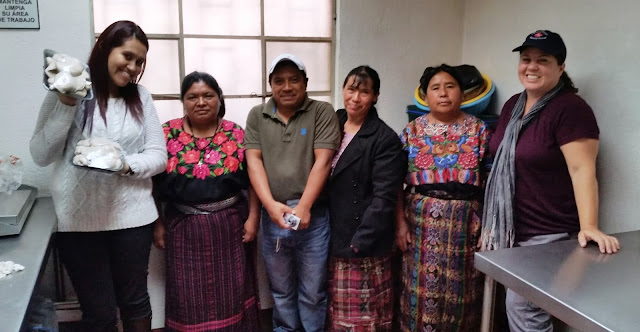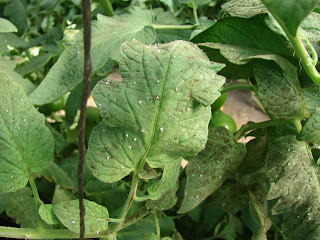Mushrooms are Making a Difference in Guatemala

Oyster mushrooms and other specialty mushrooms are a growing business in Guatemala and elsewhere. Farmer-to-Farmer has been assisting Asociación Visión Maya in improving production practices and addressing other issues in the mushroom value chain. Partners' Vice President for Development Programs Peggy Carlson (far right) recently visited Visión Maya and got to see the operation first-hand and talk to some of the women about the impact of the program. The women worked with two F2F volunteers - Dr. Khalid Hameed and Dr. Henry Van Cotter from Duke University) - earlier this year who made some recommendations about modifying production systems. Action items for the various cooperative members including making changes to improve environmental conditions, developing better monitoring systems, and even smaller items, such as clearer labeling of the production bags with dates and strains. The producers have already been making changes and seeing results. One woman moved her who





